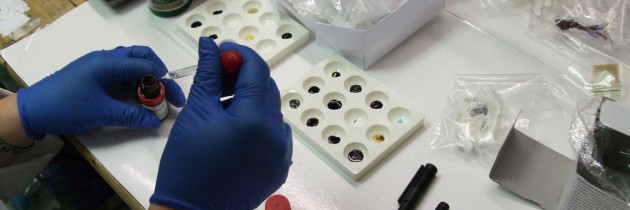Anti-doping funding a temporary fix
By Beatrice Britneff and Emanuela Campanella
Recent federal funding for Olympic anti-doping measures has come under fire from opposition New Democrats who say the law-and-order Tories haven’t gone far enough to crack down on performance enhancing drugs.
“It’s only a couple of months until the Games, so I think that’s something important to keep in mind … it does sort of seem like a publicity stunt,” said Matthew Dubé, the NDP sports critic.
Last month, the federal government and the Canadian Olympic and Paralympic committees announced a combined one-time contribution of just under $1 million to the Canadian Centre for Ethics in Sport—an independent, non-profit organization working to detect those who use performance enhancing drugs.
The additional funding is meant to help strengthen the CCES’s testing and investigative capacities, with the ultimate goal of deterring and preventing athletes from doping.
“Testing alone isn’t sufficient,” said Jeremy Luke, the director of the CCES’s anti-doping program. “We need to have mechanisms in place in order to gather information and create a culture whereby athletes can feel comfortable coming forward and reporting on wrongdoing.”
“The cost of anti-doping continues to increase and it’s a challenge to ensure that we have the resources necessary to implement the work that we do,” Luke added.
Given the relatively modest scope of the problem in Canada, the $1 million funding commitment has also been welcomed by the Canadian athletic community, according to Jasmine Northcott, executive director of AthletesCan, a not-for-profit organization representing Canadian athletes.
“The resounding feedback from athletes is that they want to be able to compete in a clean environment,” she said.
Among the new investigative capacities financed by the $1 million contribution is a new tip hotline operated by the CCES.
The hotline, 1-800-710-CCES, provides an opportunity for athletes who know that a fellow teammate is using illegal performance enhancers to anonymously report such activities. Luke said the project was inspired by similar initiatives in the United States, the United Kingdom and Australia.
“But up until this hotline, except for being able to walk up to their coach or their team administrator and say, ‘I think so-and-so is doping’, athletes haven’t had a way to come forward that provides them with protection, anonymity and a safe space to talk about it,” Northcott said.
But Dubé views the measures as a quick fix for a complicated problem.
“There’s been no promise to renew it or to make it constant in any way,” Dubé said.
“When you’re fighting drugs at any level … if you really want to truly deal with the problem, I think that more consistent, long-term funding is needed,” he added. “The problem is surprisingly serious.”
Dubé said the different players involved need to also prioritize combating the transportation of performance enhancing drugs into Canada, which requires greater communication between public safety and sport authorities on a long-term basis.
According to Luke, this remains one of the primary goals of the CCES going forward.
“That’s where we’re going to get the best intelligence gathering, which is what this funding is about,” Dubé said.
Although 1988 was the last time a Canadian Olympian tested positive for performance enhancing drugs, seven Canadian athletes have tested positive for banned drugs or stimulants in the past six months, according to the CCES.
Out of those seven, six were suspended for varied periods of time.
The additional funding will also help expand the CCES’s already established anti-doping measures, such as random testing, the Whereabouts Program and the Biological Passport.
The Whereabouts Program tracks registered athletes’ daily whereabouts so that doping control officers may locate an athlete for testing at any time.
The Biological Passport tracks athletes’ blood samples over an extended period in order to act on any sudden abnormalities as quickly as possible.
If they are caught, athletes could face reprimand, suspension or even banishment from sport altogether.
“I think at the very least what comes out of this is renewed education about doping,” Northcott said.
“And the statistics show, the lion’s share of our athletes are making the right choices.”
Cover photo courtesy of UK Home Office


